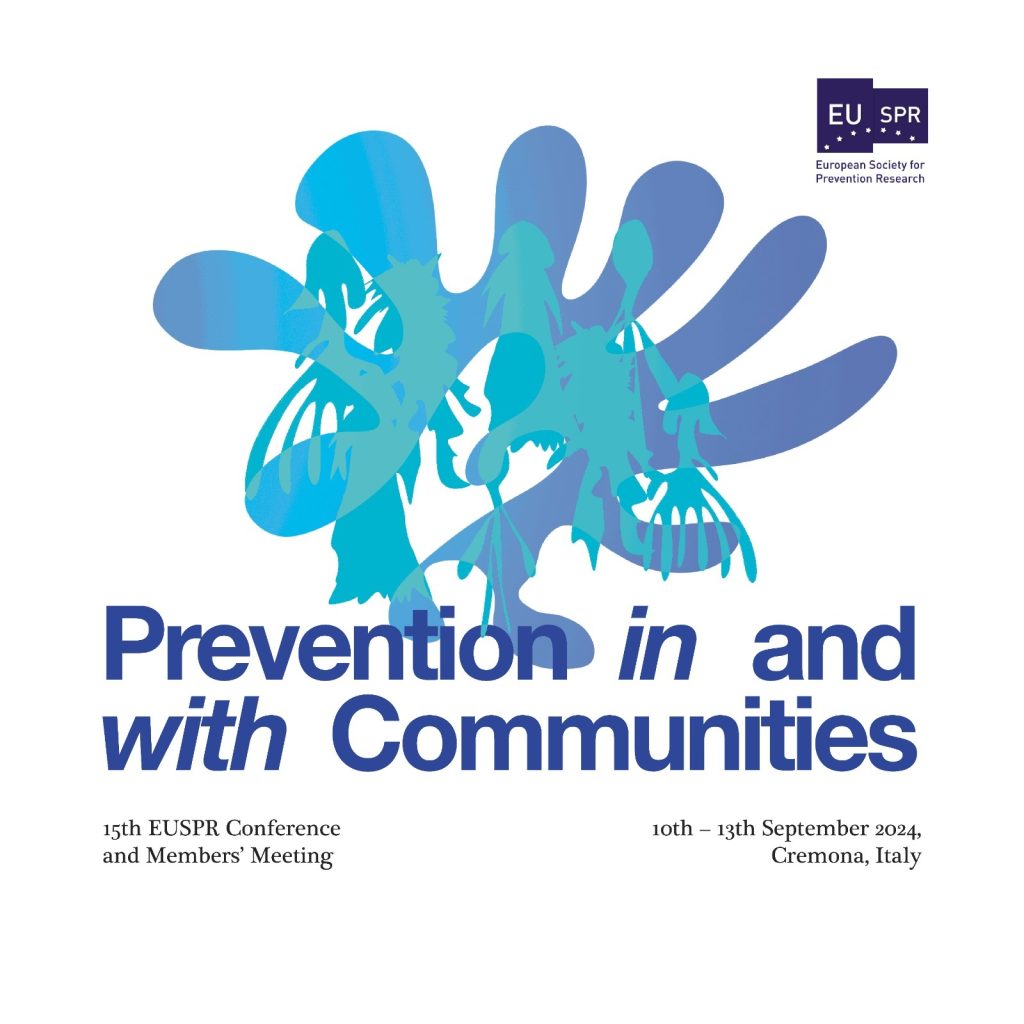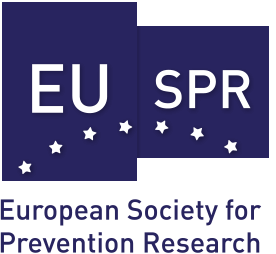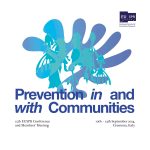15th EUSPR Conference – 11 to 13 September 2024, Cremona, Italy
Abstracts submission extended until 30 April 2024!
We are pleased to announce that the call for abstracts for EUSPR 2024 opens on 22 March 2024 and will close on 19 April 2024. Outcomes will be sent before the end of our Early Bird registration period, so you will have plenty of time to take advantage of our discounted rates.
Abstract submission and conference registration: https://euspr2024.exordo.com
Our theme this year is “Prevention in and with Communities” and our keynotes and special sessions will discuss the challenges and opportunities for prevention science when working in and with community settings and systems. The goal of the conference is to connect research with practical needs of communities, discuss pros and cons of different approaches to prevention in and with community settings, as well as opportunities and challenges of developing, implementing and evaluating evidence-based community-level prevention programmes and systems.

Each abstract should be about 250-300 words and have the following subheadings as a structure: Background, Methods, Results, Discussion (except for Pre-Conference Workshop proposals). We invite you to prepare and submit abstracts in the following formats:
- Oral Communication | On-site: A formal, research-based 12-minute-long presentation with a focus on high quality prevention research (including methodology, epidemiology, aetiology, intervention outcomes, implementation, evidence-based programmes and policy, etc.). Talks will be followed by a short Q&A session (3 minutes). Usually, oral communications are grouped together in conference sessions of 60 to 90 minutes (4-6 presentations).
- E-Poster | On-site: Research posters summarize information or research concisely and attractively to help publicize it and generate discussion. The poster is usually a mixture of a brief text mixed with tables, graphs, pictures, and other presentation formats. Posters should be in portrait orientation. Please provide a PDF of your e-poster (if your abstract is accepted as an e-poster, you will receive instructions in a separate email).
- Campfire | On-site: A campfire is a less structured form of discussion, where usually one or two presenters talks about their work, an important idea, development or concept for 10-15 minutes each, and then act as their own facilitators, inviting comments, insights, and questions (10-15 minutes) from audience members in the room. Campfire sessions usually last between 30-60 minutes. Please note: Due to limited space at the conference, only few campfire sessions will be accepted and you might be asked to present as an oral communication or poster instead.
- Symposium | On-site: A symposium includes a chair, three to four presenters, and a discussant (optional). Symposia are scheduled in 60 to 90-minute time slots (4-6 presentations) and should allow for discussion among presenters and the audience. PLEASE NOTE: The symposium is submitted as a single abstract by the chair of the symposium. As chair, please provide a tentative title of the symposium, a short structured abstract (see above) of the entire symposium, as well as the title, authors and abstracts corresponding to each presentation that is supposed to be part of the symposium.
- Pre-Conference Workshop | On-site: A pre-conference workshop will be set on the pre-conference day (Sep 10). It usually lasts between 3-8 hours, in the morning and/or the afternoon. Therefore, please indicate if your submission refers to a half-day or a full-day workshop. Workshops are quite practical and provide hands-on information and interaction regarding prevention science topics. Each pre-conference workshop includes at least one chair (submitting author). Please also indicate the number of participants that can attend your workshop.
The scientific committee will make the final decision to accept or reject submissions.

